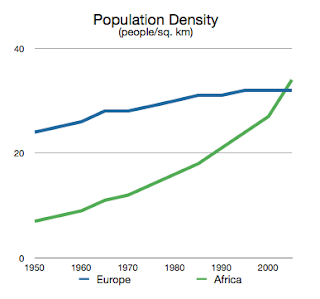Sean Fox, a cities expert at the LSE has a great new post up at the Africa@LSE Blog discussing how incorrect analysis has been leading to poor policy for years.
The popular mental model is that there is massive rural-urban migration in search of jobs.
The popular mental model is that there is massive rural-urban migration in search of jobs.
"Since the mid-1970s, African governments have increasingly adopted policies designed to inhibit or discourage people from moving into urban areas. Today, approximately 80% of African countries have policies in place to prevent rural-urban migration. At the same time, international development organisations increasingly withdrew support for urban development initiatives in favour of rural development projects, often justified by the argument (among others) that improving standards of living in rural areas will help to mitigate the growth of urban poverty."The trouble is, most urban population growth is actually just natural growth. And the rural-urban migration that does exist is driven by a range of factors, not just jobs, such as a "desire to escape age or gender discrimination in their communities, to find a wife or husband, to seek adventure in the “bright lights” of the big city, or to escape rural serfdom."
Which is actually pretty clear when you just look at the data. This is rural and urban population growth in Africa since the 1960s, based on the World Development Indicators (chart stolen from Ian MacAuslan). Cities are growing fast, but so are rural populations.
And the last word from Sean;
"Simply put, the rapid growth of Africa’s urban population is being driven primarily by rapid population growth in urban areas, not rural-urban migration ... For those interested in easing demographic pressure in urban areas, the only humane policy option is to try to reduce population growth by promoting fertility decline through voluntary family planning initiatives. And for those interested in promoting economic development in the region, investment in urban areas should be top of the policy agenda."Read the whole thing here.


